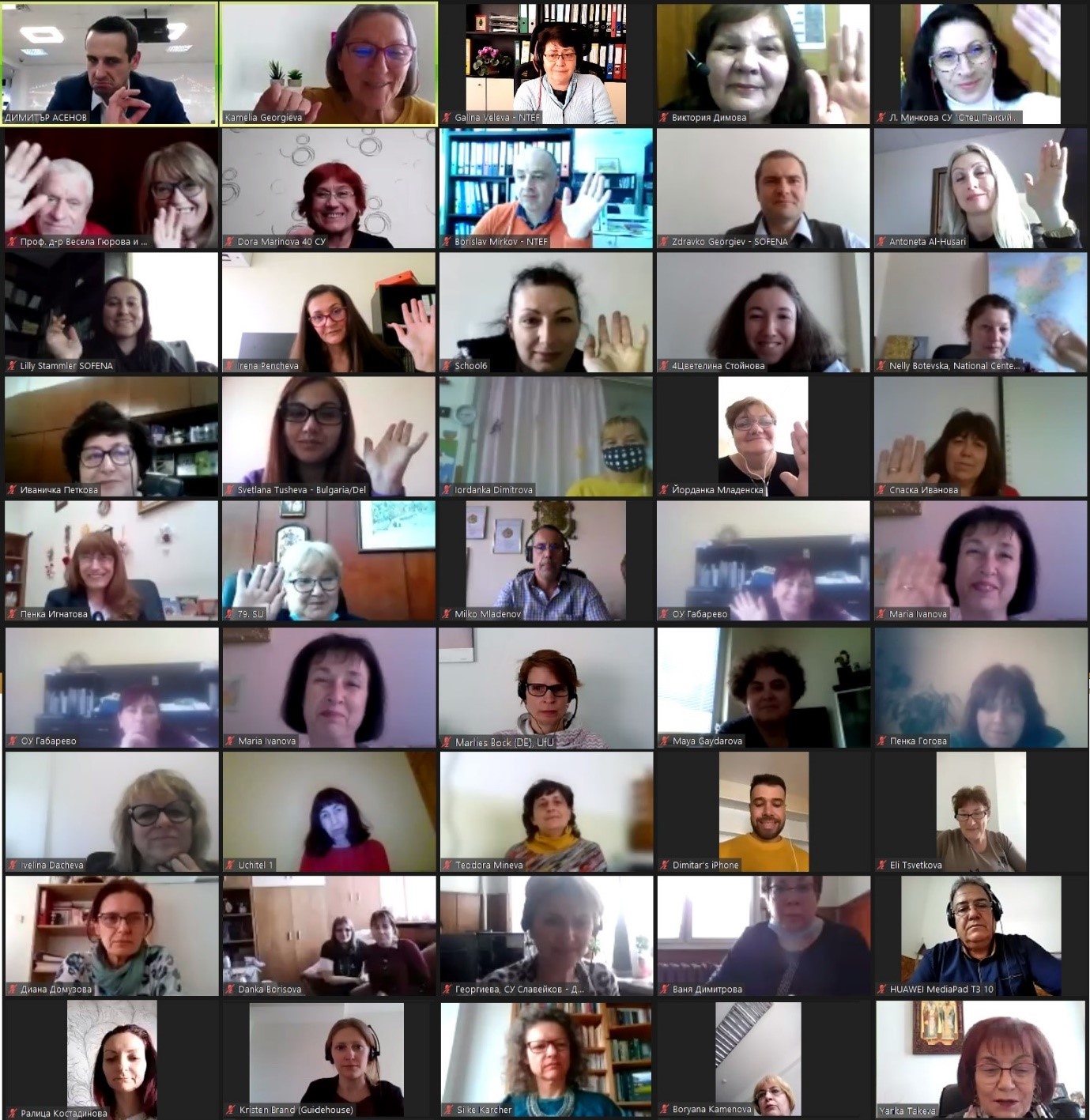National workshops on improving framework conditions for local climate action conducted in BEACON countries
As part of the project Bridging European and Local Climate Action (BEACON), national workshops were organised in all of the BEACON countries. The overarching aim of the virtual national workshops was to identify, specify and decide on further steps towards improving the national framework conditions for climate action on the ground. These national workshops took up the various strands of the BEACON project and further served to anchor the impulse for stronger cooperation between government levels.
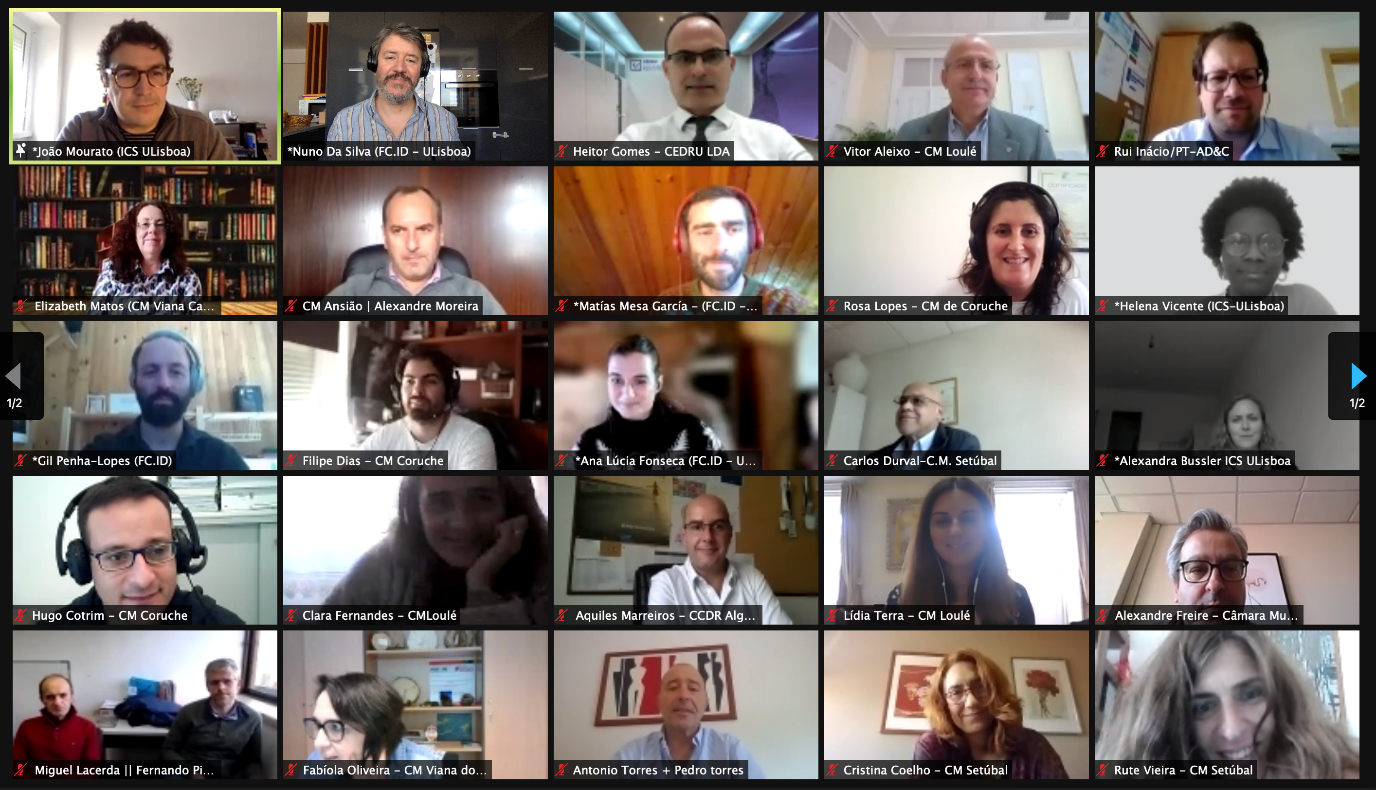
Further Information
Portugal: Catalysing Local Climate Action
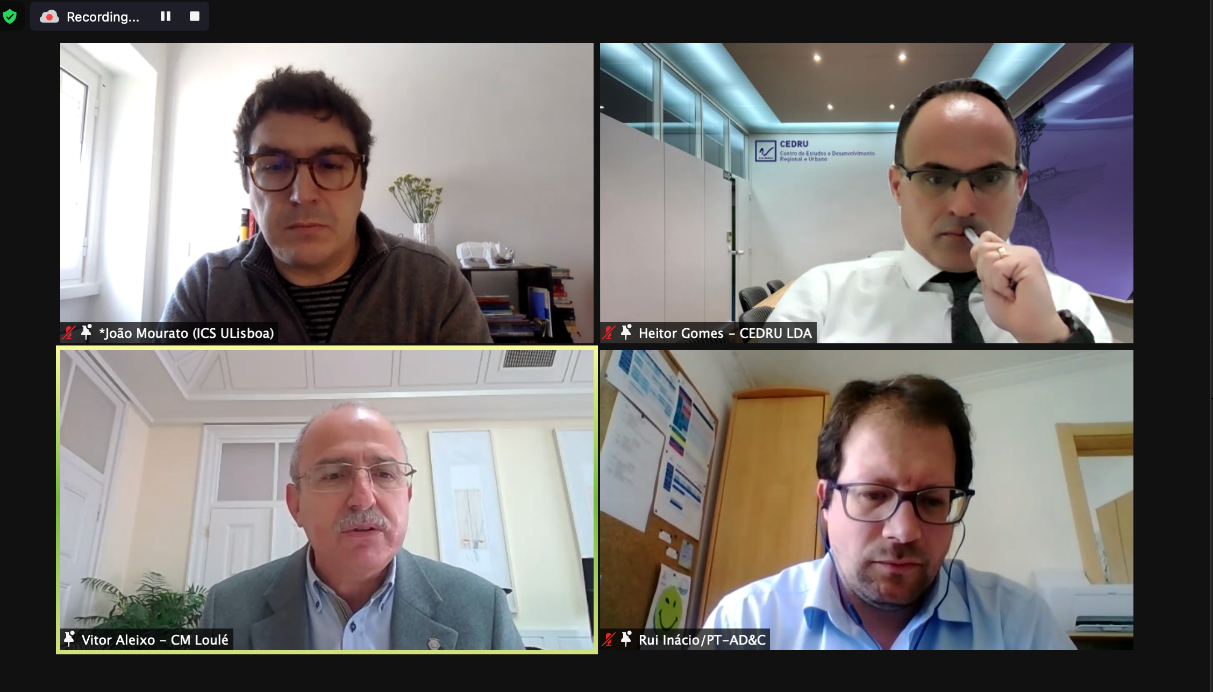
BEACON’s Portuguese national workshop on Catalysing Local Climate Action took place on April 20 and 22. Over the course of two days, the focus was on climate action funding and capacity-building. The event was attended by more than 25 participants, including representatives of BEACON partner municipalities, other pioneer and flagship municipalities, regional and national funding agencies, i.e. the ADC (Agency for Cohesion and Development), the CCDR (Regional Coordination and Development Commission), the CIM (Intermunicipal Community), and the AML (Lisbon’s Metropolitan Area). BEACON’s long-standing consultants from the CEDRU (Center for Regional and Urban Development Studies) also participated.
Despite being at the forefront of translating EU policies to the local level, Portuguese municipalities still experience challenges, such as a lack of technical skills, funding timing issues or the inability to self-finance projects. In order to improve climate funding practices, it is necessary to acknowledge the differences between municipalities and further promote inter-municipal relationships, but this poses several challenges. Therefore, the key topics addressed were climate action funding opportunities, key obstacles, and how to better overcome them. Cross-sectional concepts and methodologies were discussed, such as establishing European partnerships in climate action projects, making better use of supra-municipal plans and pilot projects, and the funding of a multi-level network culture. The workshop could identify a deficit of training at the municipal levels which should be mitigated via participation in networks and internal cross-sector trainings.

Romania: Better Cooperation Between Local and National Levels
The Romanian workshop on Better Cooperation Between Local & National Levels for a Faster Energy & Ecology Transition took place on 20 April. Among the 43 participants, Mr. Adrian Mărgărit (Ministry of Investment and European Projects), Mrs. Amelia Turtureanu (Ministry of Environment, Water and Forestry), Mrs. Luminița Bălălău (Department of Sustainable Development of the Romanian Government), and Mrs. Gabriela Țârău (Regional Development Agency Center (ADR Centru)) attended. Representatives from other local energy agencies and private companies took part in the workshop as well.
The workshop could identify a great need for the establishment of an official communication channel between the local and national levels. It was concluded that there is the need and opportunity for the Romanian Network of Energy Cities (OER) to act as such a channel, also involving green solutions suppliers for the needed expert advice. Furthermore, OER should continue to provide useful resources to national and local authorities, such as guides and materials developed as part of BEACON, as well as information about barriers and solutions that were identified in financial assessment procedures.
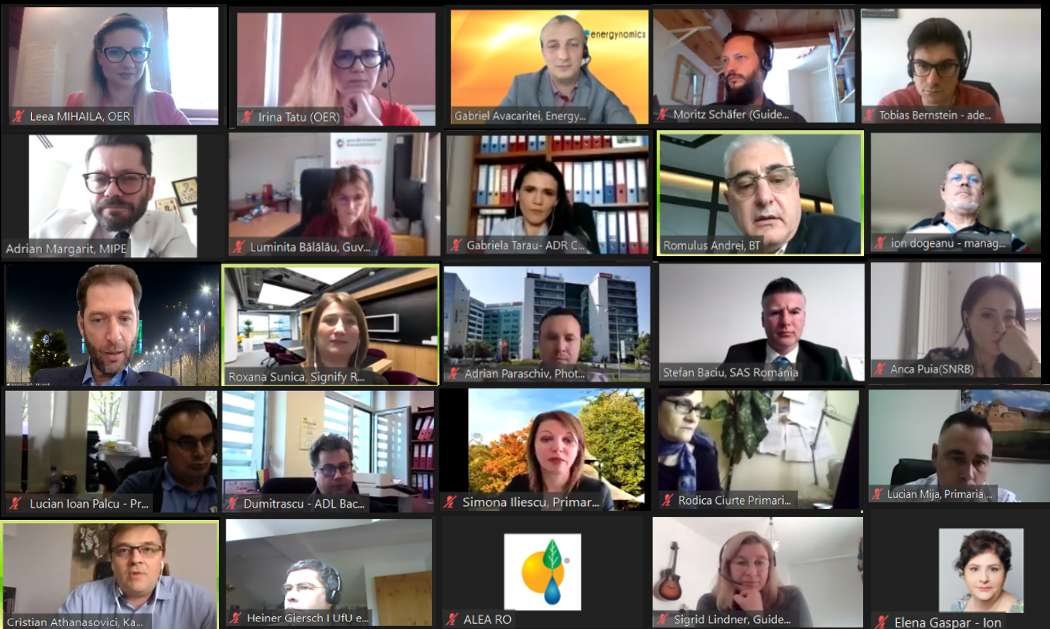
Poland: Accelerating the Energy Transition and Climate Actions on the Local Level
About 45 participants attended the Polish workshop on Accelerating the Energy Transition and Climate Actions on the Local Level on 27-28 April, among them also Marcin Jaczewski (Ministry of Economic Development, Labour and Technology); Anna Madyniak (Ministry of Climate and Environment); Michalina Butyńska-Naróg, Anna Jagiełło, Magdalena Norejko-Ekielska (Ministry of Development Funds and Regional Policy); and Patrycja Pelc, Agnieszka Zagrodzka, Marta Babicz and Daniel Markiewicz (National Fund for Environmental Protection and Water Management). Other organisations represented include the Institute for Territorial Development, the Polish Green Network, and the Electric Vehicles Promotion Foundation.
The purpose of the workshop was to continue a multi-level dialogue on national policy frameworks for the energy transition and climate actions on the local level. For enhancing the capacities of municipalities to develop and implement projects, certain challenges were identified. These include a lack of educational activities in ecology, climate change, and sustainable transport, leading to low awareness amongst citizens. Further challenges are the need for legal and organisational regulations regarding energy clusters and energy cooperatives and complicated procedures when applying for financing from the national programs. Participants agreed that more concrete and practical issues that need to be tackled are the lack of a definition of ‘energy poverty’ in Poland, which results in insufficient support in this area, as well as the need to create an effective sustainable transport system to replace the use of cars. It was concluded that in order to implement new projects, municipalities primarily need external support from strategic and technical experts, consulting companies, and associations. The country network of such experts already available could efficiently support local climate actions.
This multilevel dialogue will be further developed and continued during events hosted by BEACON partner PNEC (the Association of Municipalities Polish Network „Energie Cités”).
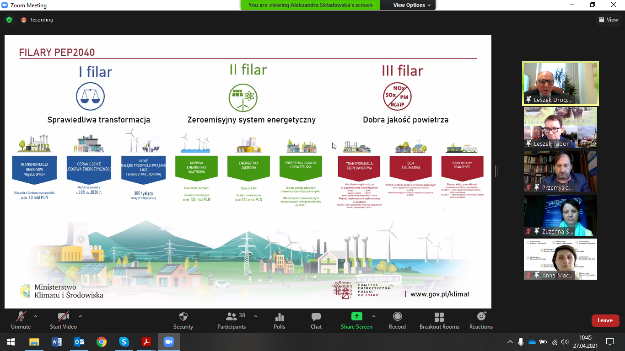
Czech Republic: Climate Protection in Czech Cities and Schools
The Czech workshop on Climate protection in Czech Cities and Schools held on 29-30 April was attended by 34 participants, including representatives from the Ministry of the Environment of the Czech Republic, the Charles University Environment Centre, SEVER (The Rýchory Centre of Environmental Education and Ethics), and the Czech Technical University in Prague.
The aim was to find methods to integrate climate measures at the local level and share successful outcomes and good practices from the BEACON project that could be replicated in other municipalities and schools. This was complemented by a presentation of the ambitious SECAP of the city of Prague and two BEACON-sponsored studies. One on the possibilities of financing climate action in municipalities and the other on opportunities to further integrate climate action in teachers’ education. The presentations of the two studies were recorded and can be accessed on YouTube (in Czech). The workshop was concluded with a fruitful panel discussion with experts from the national level, academia and an NGO, which addressed the best use of the BEACON experiences and possibilities of scaling up its project activities as well as jointly developed recommendations. The recording of the panel discussion can also be accessed on YouTube (in Czech).
Greece: Empowering Local Authorities in Climate Action
The Greek national workshop on Empowering Local Authorities in Climate Action was held on 11-12 May 2021 and joined by 35 participants. Among them, the Deputy Governor of the Region of Central Macedonia, participants from the Ministry of Environment, as well as from the Management Organisation Unit of Development Programmes (MOU), the National Technical University (NTUA), the Technical Chamber of Greece (TEE), the Union of Greek Municipalities (KEDE), and the Greek BEACON municipalities attended the event. Additional organisations represented were the Greek Association of Certified Energy Inspectors, an energy company, and four municipalities not part of BEACON (Veroia, Chalandri, Agia Varvara, Farkadona).
The workshop was accompanied by a great spirit of exchange: Common challenges could be identified and an optimistic approach for better coordination of general actions was concluded, including a first link to coordinated activities at a regional level.
Through intensive discussions on financial instruments, especially those involving other actors (i.e. ESCOS, energy communities etc.), concrete results could be reached, especially the request to KEDE to centrally support municipal energy planning and management, including data collection systems, utilisation of building identity certificates, and combined communication strategies.
Bulgaria: The Role of Educational Institutions on the Way to Climate Neutrality
The Bulgarian workshop on the Role of Educational Institutions on the Way to Climate Neutrality was held on 12 and 22 April was attended by 52 participants, among them Silke Karcher and Sarah Heft (German Federal Ministry for the Environment), Boryana Kamenova and Svetla Tusheva (Bulgarian Ministry of Environment and Water), and Dimiter Asenov and Tatyana Dimitrova (Bulgarian Ministry of Education). Other organisations represented include the Bulgarian Teachers’ Trade Union, the Sofena Energy Agency, the Eneffect Agency, as well as several universities. The mayor and the deputy mayor of two municipalities were also present.
The aim of the workshop was to discuss the creation of a National Program on education for climate action and energy efficiency in Bulgarian schools and kindergartens and two related aspects, namely the role of municipalities and the role of universities. Throughout the discussion the proposed draft of the National Program was amended with significant input regarding the use of existing training materials and models. Furthermore, the participants agreed about the need to give local authorities a specific role in the program. A proposal was made to review legislation in the upcoming months to make the connection between the owners of school/kindergarten buildings (the municipalities) and their users (the schools, which are governed by the Ministry of Education) more relevant and effective in regards to enhancing energy efficiency. The role of the users responsible for monitoring results and energy efficiency measures are to be discussed and clearly stated in the future. Also, participants expressed the need for more knowledge about best practices and international experiences. The role of universities needs to be enhanced by forming teams of professors to develop relevant programs in several universities. After this workshop, steps will be taken to continue relations with the Ministry of Education for the approval of the proposed National Program.
